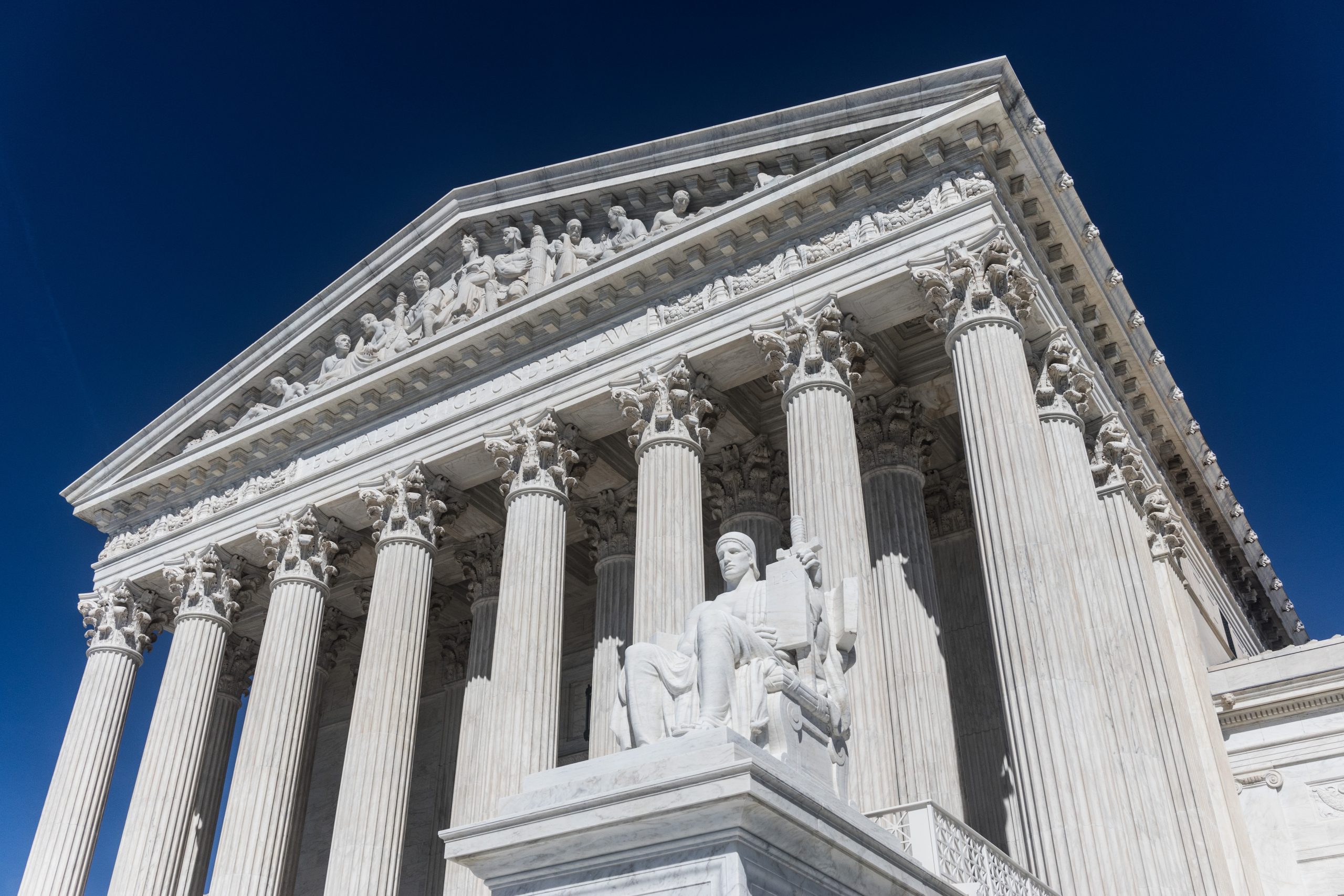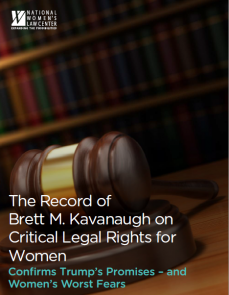Abortion rights, women of color, and LGBTQIA+ people are under attack. Pledge to join us in fighting for gender justice.

 On June 29, 2018, Justice Anthony Kennedy announced his retirement from the United States Supreme Court, launching a confirmation process that has tremendous stakes for women and girls. The Supreme Court has an enormous impact on women’s ability to live their lives with dignity and equality. It affects individual liberty, including women’s right to make decisions about their own bodies and to determine who and how people love. The Court’s decisions determine whether the Constitution’s guarantee of Equal Protection has meaning for millions across the country or is simply a hollow promise. And the Court can affirm or eviscerate the ability of Congress and the states to address discrimination, ensure access to health care, and create equal opportunity in the workplace and school. In recent years, many cases involving issues of critical importance to women have been decided by the Supreme Court with narrow margins and often by just one vote, with Justice Kennedy often the key decision maker. The next Justice to join the Supreme Court thus could shift the balance of the Court on these issues for a generation.
On June 29, 2018, Justice Anthony Kennedy announced his retirement from the United States Supreme Court, launching a confirmation process that has tremendous stakes for women and girls. The Supreme Court has an enormous impact on women’s ability to live their lives with dignity and equality. It affects individual liberty, including women’s right to make decisions about their own bodies and to determine who and how people love. The Court’s decisions determine whether the Constitution’s guarantee of Equal Protection has meaning for millions across the country or is simply a hollow promise. And the Court can affirm or eviscerate the ability of Congress and the states to address discrimination, ensure access to health care, and create equal opportunity in the workplace and school. In recent years, many cases involving issues of critical importance to women have been decided by the Supreme Court with narrow margins and often by just one vote, with Justice Kennedy often the key decision maker. The next Justice to join the Supreme Court thus could shift the balance of the Court on these issues for a generation.
President Trump nominated D.C. Circuit Court of Appeals Judge Brett M. Kavanaugh on July 9, 2018. Over the last two months the National Women’s Law Center has examined Kavanaugh’s publicly available record. In reviewing a nominee’s record, the National Women’s Law Center focuses, in particular, on the constitutional right to liberty and personal decision-making, including the rights to abortion and birth control, and on antidiscrimination protections, including prohibitions against sex discrimination under the Equal Protection Clause or statutory provisions that protect against discrimination in education and employment, and beyond. In addition, protections of women’s health and safety, social welfare, access to justice and public benefits represent areas of importance to women, and thus to the Center. In light of the record available, we conclude that Kavanaugh should not be confirmed to a lifetime appointment on the Supreme Court.
